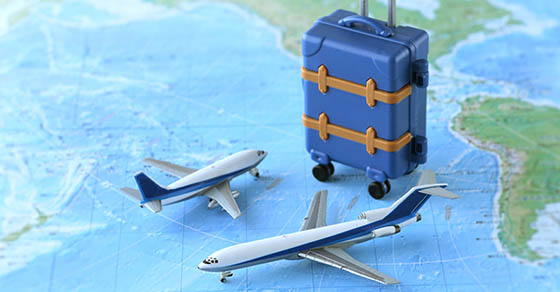

As a business owner, you may travel to visit customers, attend conferences, check on vendors and for other purposes. Understanding which travel expenses are tax deductible can significantly affect your bottom line. Properly managing travel costs can help ensure compliance and maximize your tax savings.
Your tax home
Eligible taxpayers can deduct the ordinary and necessary expenses of business travel when away from their “tax homes.” Ordinary means common and accepted in the industry. Necessary means helpful and appropriate for the business. Expenses aren’t deductible if they’re for personal purposes, lavish or extravagant. That doesn’t mean you can’t fly first class or stay in luxury hotels. But you’ll need to show that expenses were reasonable.
Your tax home isn’t necessarily where you maintain your family home. Instead, it refers to the city or general area where your principal place of business is located. (Special rules apply to taxpayers with several places of business or no regular place of business.)
Generally, you’re considered to be traveling away from home if your duties require you to be away from your tax home for substantially longer than an ordinary day’s work and you need to get sleep or rest to meet work demands. This includes temporary work assignments. However, you aren’t permitted to deduct travel expenses in connection with an indefinite work assignment (more than a year) or one that’s realistically expected to last more than a year.
Deductible expenses
Assuming you meet these requirements, common deductible business travel expenses include:
Meal expenses are generally 50% deductible. This includes meals eaten alone. It also includes meals with others if they’re provided to business contacts, serve an ordinary and necessary business purpose, and aren’t lavish or extravagant.
Claiming deductions
Self-employed people can deduct travel expenses on Schedule C. Employees currently aren’t permitted to deduct unreimbursed business expenses, including travel expenses.
However, businesses may deduct employees’ travel expenses to the extent they provide advances or reimbursements or pay the expenses directly. Advances or reimbursements are excluded from wages (and aren’t subject to income or payroll taxes) if they’re made according to an “accountable plan.” In this case, the expenses must have a business purpose, and employees must substantiate expenses and pay back any excess advances or reimbursements.
Mixing business and pleasure
If you take a trip in the United States primarily for business, but also take some time for personal activities, you’re still permitted to deduct the total cost of airfare or other transportation to and from the destination. However, lodging and meals are only deductible for the business portion of your trip. Generally, a trip is primarily for business if you spend more time on business activities than on personal activities.
Recordkeeping
To deduct business travel expenses, you must substantiate them with adequate records — receipts, canceled checks and bills — that show the amount, date, place and nature of each expense. Receipts aren’t required for non-lodging expenses less than $75, but these expenses must still be documented in an expense report. Keep in mind that an employer may have its own substantiation policies that are stricter than the IRS requirements.
If you use your car or a company car for business travel, you can deduct your actual costs or the standard mileage rate.
For lodging, meals and incidental expenses (M&IE) — such as small fees or tips — employers can use the alternative per-diem method to simplify expense tracking. Self-employed individuals can use this method for M&IE, but not for lodging.
Under this method, taxpayers use the federal lodging and M&IE per-diem rates for the travel destination to determine reimbursement or deduction amounts. This avoids the need to keep receipts to substantiate actual costs. However, it’s still necessary to document the time, place and nature of expenses.
There’s also an optional high-low substantiation method that allows a taxpayer to use two per-diem rates for business travel: one for designated high-cost localities and a lower rate for other localities.
Turn to us
The business travel deduction rules can be complicated. In addition, there are special rules for international travel and travel with your spouse or other family members. If you’re uncertain about the tax treatment of your expenses, contact us.

